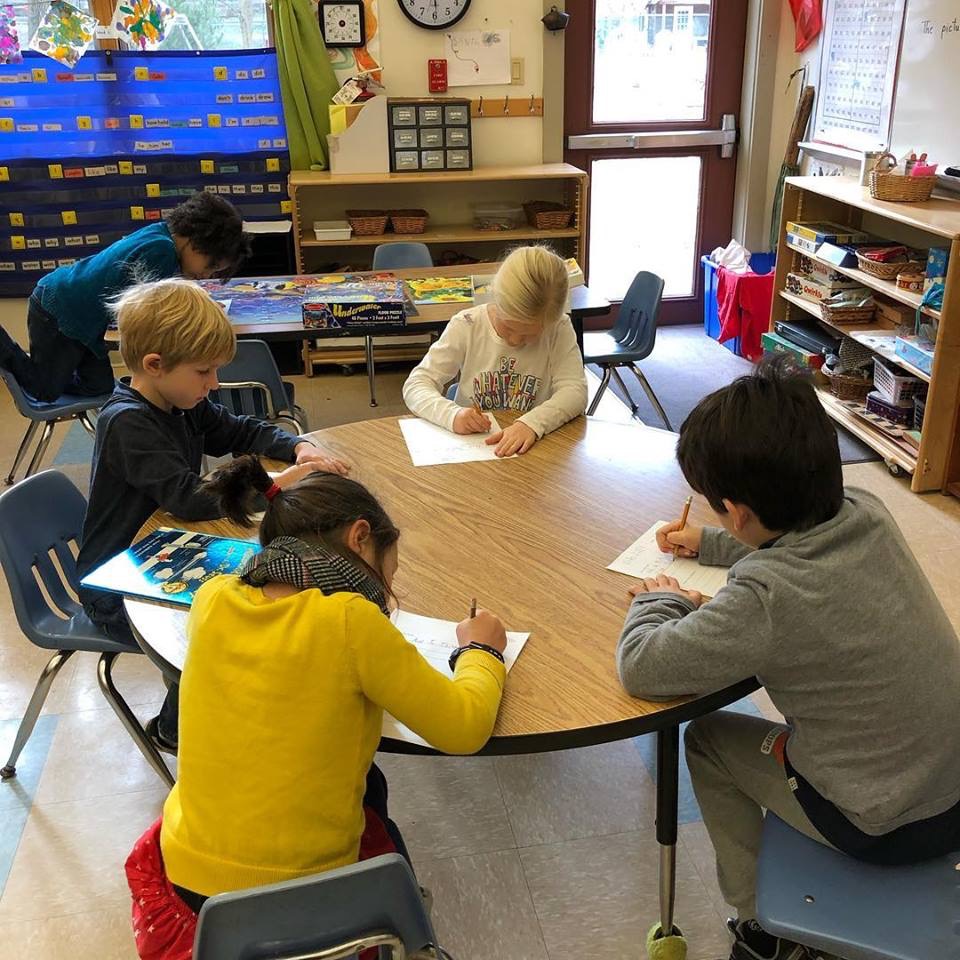Nurturing Emotional Intelligence in Early Childhood
Emotional intelligence (EQ) is a set of skills that enables us to understand, express, and manage our own emotions, as well as recognize, empathize with, and influence the emotions of others. While IQ contributes to academic and professional success, research shows that EQ is the strongest predictor of happiness and quality relationships.
EQ skills develop rapidly in early childhood, making the preschool years a critical window of opportunity. Children’s emotional well-being and capacity to get along with others provide the foundation for lifelong mental health, relationships, and achievement. As an early childhood provider, Crystals Childcare & Preschool is deeply committed to fostering emotional intelligence. Read on to understand what EQ is, why it matters, and how parents and teachers can nurture it.
What is Emotional Intelligence?
EQ consists of four core abilities:
- Self-awareness – Recognizing our own emotions and how they impact our thoughts and actions. This builds self-confidence and self-control.
- Self-management – Handling emotions so they facilitate rather than interfere with the task at hand. This increases focus, productivity, and resiliency.
- Social awareness – Sensing what others feel based on verbal and nonverbal cues, promoting empathy and compassion.
- Relationship skills – Using awareness of self and others to communicate clearly, listen well, cooperate, resolve conflict, and make friends.
Why Emotional Intelligence Matters in Early Childhood
Research shows that EQ is pivotal for children’s development of:
- Self-esteem and identity – Children with higher EQ have a stronger sense of self and purpose.
- Mental health – EQ builds resilience, helping kids bounce back from challenges. Low EQ raises psychiatric risks later in life.
- Physical health – EQ skills reduce impulsiveness and stress hormones that negatively impact health over time.
- Academic performance – EQ boosts focus, executive function, and willingness to learn. · Relationships – EQ is the core capacity for healthy friendships and family bonds.
- Leadership -EQ enables teamwork, progress on shared goals, and responsible decision-making.
· Life satisfaction and well-being – Higher EQ children grow into content, fulfilled adults





How Crystals Childcare & Preschool Fosters Emotional Intelligence
Crystals Childcare & Preschool integrates EQ into all aspects of classroom culture and curriculum. Teachers model EQ skills, coach children through emotional challenges, and praise effort over innate talent. Key strategies include:
Fostering self-awareness
We devote classroom time every day for children to explore feelings. Kids learn to read physical and behavioral cues to identify emotions in themselves and others. We use emotion charts and feeling wheels to expand emotional vocabulary. Children also practice non-judgementally observing thoughts, emotions, and urges.
Building self-management
Children brainstorm strategies to handle disappointment, anxiety, anger, and other difficult feelings. We guide them to use self-talk, breathing, movement, or fidget toys to self-soothe. Kids also set goals and make plans to control impulses and handle frustration.
Encouraging social awareness
We demonstrate care, concern, and respect in our interactions with kids to model empathy. Students also roleplay how words and actions impact others. We discuss emotional cues in books, videos, and each other’s facial expressions and body language. Kids reflect on what peers may feel and need in various social situations.
Developing relationship skills
Every day, we help students listen to one another, take turns, cooperate, share, and express appreciation. Kids practice joining play, offering support, showing interest in classmates, resolving disputes, and standing up respectfully for themselves and others. We also discuss forgiveness, reconciliation, and making amends.
Other ways we support emotional intelligence:
- · Warm, responsive teacher-child relationships
- · Positive reinforcement to motivate desired behavior
- · Class meetings to build community, solve problems, and set goals
- · Quiet space for self-regulation when overwhelmed
- · Citizenship, diversity and anti-bias training
- · Referrals to counselors, educational therapists, as needed
How Parents Can Nurture EQ at Home
Children’s capacity for emotional intelligence blooms through consistent nurturing across their environments. Reinforce Crystals’ EQ lessons by modeling and coaching these skills:
- Discuss shared feelings during family downtime – while cooking, driving, or at mealtimes.
- Explore emotions portrayed in movies, stories, and news together.
- Validate your child’s feelings without judging them as good or bad.
- Help your child put feelings into words using our feeling wheel.
- Role-play empathy by imagining how others feel. Discuss how to help.
- Brainstorm coping strategies together when disappointed or frustrated.
- Discuss managing worries, anger, and impulses as opportunities for growth.
- Offer structured choices to resolve conflicts and redirect negative behavior.
- Appreciate the effort by encouraging self-improvement over the competition.
- Foster self-care abilities like resolving conflicts independently.
When parents and teachers collaborate to coach emotional intelligence across settings, children thrive. Trust Crystals’ expertise in research-backed best practices tailored to each developmental stage. Discover more about our whole child approach by booking a preschool tour today!
Contact Crystals Childcare & Preschool Learn More
Crystals Childcare & Preschool would be delighted to welcome your family for a personalized tour. Observe teachers modeling EQ skills firsthand and ask us how we can foster your child’s
full potential. Reach out today at (432) 687-5904 info@crystalschildcare.org . Invest in your child’s development with Crystals’ gold standard in early education.

